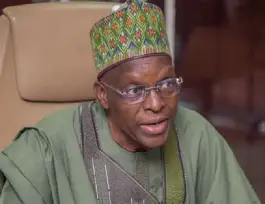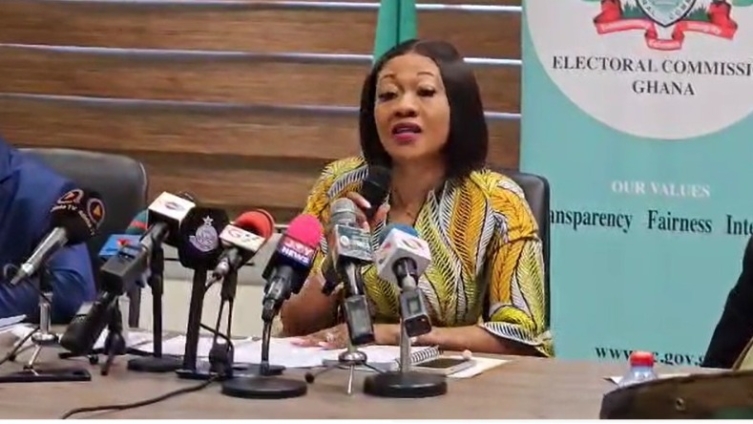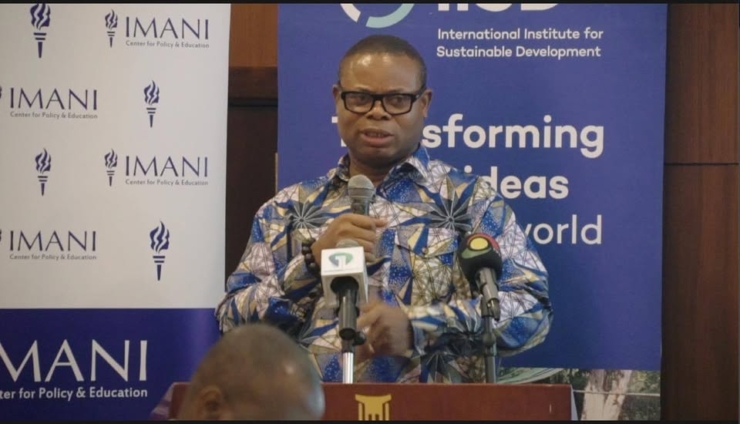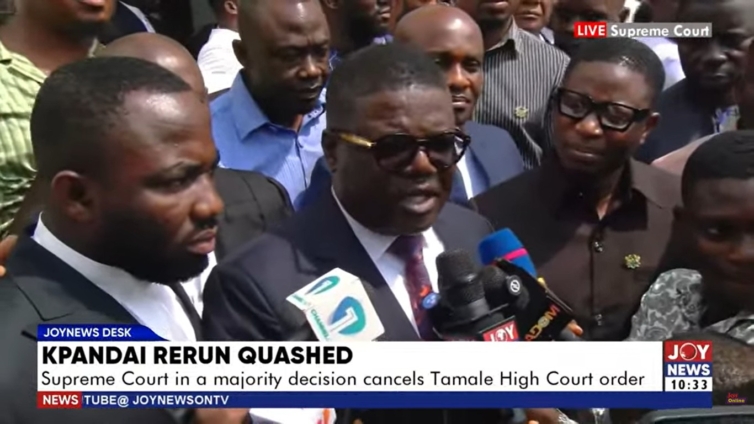Parliamentary Chaos Erupts Over Kpandai Seat: Speaker's Ruling & 'Irresponsible' Election Judgment Spark Row

The Speaker of Parliament, Alban Sumana Kingsford Bagbin, has issued an official ruling confirming that Matthew Nyindam, the Member of Parliament for Kpandai, remains eligible to conduct business in the House. This clarification comes amidst deep controversy and heated exchanges between the minority and majority caucuses on Wednesday, November 26, which ultimately forced an abrupt adjournment of parliamentary proceedings. The majority had insisted that a Tamale High Court’s annulment of the Kpandai constituency’s 2024 parliamentary election results effectively barred Mr. Nyindam from presenting himself as an MP, a position strongly contested by the minority.
Mr. Nyindam, for his part, has consistently asserted his legitimacy as the MP for the constituency, even after the court's decision. He reiterated this stance on JoyFM’s Top Story, defending his continued participation in parliamentary affairs.
Addressing Parliament on Thursday, November 26, Speaker Bagbin meticulously explained the legal basis for his ruling. He clarified that, according to Court of Appeal rules, the filing of a notice of appeal automatically imposes a seven-day stay on a High Court’s decision. Given that the Tamale High Court’s annulment ruling was delivered on Monday, November 24, 2025, this stay of execution remains in effect until December 1, 2025. During this critical period, the High Court ruling cannot serve as grounds for the Speaker to instruct the Clerk to notify the Electoral Commission that the Kpandai seat is vacant.
The Speaker further noted that if Mr. Nyindam chooses to exercise his right of appeal, potentially through an application under Rule 27(1) of C.I. 19, a further suspension could be imposed on the enforcement of the High Court judgment until the appeal process is fully resolved. Consequently, Speaker Bagbin stated that it would be premature to declare Mr. Nyindam disqualified from entering and participating in parliamentary business before the mandatory seven-day stay expires. He affirmed that Mr. Nyindam was correct in his decision to participate in House proceedings, stating, “Honourable Members, this is not a declaratory order; it is an executive order delivered by the High Court.”
The background to this dispute stems from a petition filed by Daniel Nsala Wakpal, the National Democratic Congress (NDC) parliamentary candidate. The Tamale High Court, presided over by Justice Emmanuel Brew Plange, nullified the December 7, 2024, parliamentary election in Kpandai on Monday, November 24, 2025. The petition alleged significant irregularities, specifically highlighting inconsistencies in Form 8A (“pink sheets”) from 41 out of 152 polling stations, which the petitioner argued violated Regulations 39 and 43 of the Public Elections Regulations (CI 127). The court ruled that these procedural breaches materially affected the integrity of the vote and ordered the Electoral Commission to conduct a rerun of the parliamentary election across the entire constituency within 30 days.
In response, the minority in Parliament has vociferously criticized Justice Emmanuel Brew Plange, accusing him of judicial overreach. Minority Leader Alexander Afenyo-Markin told journalists on Wednesday, November 26, that the caucus would fiercely challenge any attempt to prematurely remove the sitting MP, Matthew Nyindam, before all legal processes are concluded. Afenyo-Markin described the judgment as “breathtaking in its reach and alarming in its implications,” especially a complete rerun order without a comprehensive, reasoned judgment, which he deemed “judicial irresponsibility of the highest order.”
While acknowledging the court’s ruling reflects the need to uphold electoral integrity, the minority’s concerns underscore the importance of transparent and well-reasoned judicial decisions that do not inadvertently erode public confidence in democratic institutions. The management of this complex situation—involving the Electoral Commission, political parties, and the judiciary—will undoubtedly set a crucial precedent for future electoral disputes in Ghana, reinforcing the principles of justice, accountability, and democratic governance.
Recommended Articles
Vote-Buying Scandal Ignites Ayawaso East: NDC Primary Plunges Into Disputed Chaos

Allegations of vote-buying during the Ayawaso East NDC parliamentary primary have sparked widespread condemnation and an...
Ghana rocked by Ayawaso East vote-buying scandal: NDC probe intensifies amid democratic integrity fears!

Ghana's Ayawaso East constituency is embroiled in controversy following alleged vote-buying during the NDC parliamentary...
Explosive Bribery Scandal Rocks Ghana's Ayawaso East Primary! Call for Annulment Amid Vote-Buying Fury

The National Democratic Congress (NDC) Ayawaso East parliamentary primary is embroiled in controversy following vote-buy...
Political Showdown: High Stakes as Ayawaso East NDC Delegates Battle for Power!

The Ayawaso East constituency is abuzz as the governing NDC holds its primary today, February 7, 2026, to elect a candid...
Kpandai MP Nyindam Triumphs as Supreme Court Restores Contested Seat

The Supreme Court has reinstated Kpandai MP Matthew Nyindam, overturning a High Court decision that annulled his electio...
Ghana Erupts as Supreme Court Overturns Kpandai Election, Igniting Political Firestorm!

The Supreme Court has reinstated Matthew Nyindam as Kpandai MP, overturning a High Court decision in a 4–1 majority ruli...
You may also like...
The Unwritten Rules of Buying Suya: A Guide for the Bold and the Hungry

Master the unwritten rules of buying suya in Nigeria—from night-time purchases to the sacred yaaji. A humorous guide for...
Should Grades Define Employment in the Workplace?

Should grades define employment in the workplace? Let's explore how academic classifications influence hiring, why grade...
The Art and Legacy of Joke Silva: A Trailblazer in African Film and Performing Arts

Joke Silva, award-winning Nigerian actress and mentor, has shaped African theatre and Nollywood cinema with her talent, ...
How Superhero Movies Evolved from Niche Adaptations to Box Office Giants

Superhero films began as early comic book adaptations, with icons like Superman and Batman appearing on screen in simple...
Your Body Is Not a Classroom: When Student Training Crosses the Line

When student training in healthcare lacks proper supervision and consent, patients can pay the price. Where should we dr...
Your Brain Deletes Memories on Purpose. Here’s Why Forgetting Is Necessary

Your brain deliberately deletes memories to improve focus, learning, and emotional survival. Forgetting is not weakness,...
MVP Race in Jeopardy: Top Stars Shai Gilgeous-Alexander and Nikola Jokic Face Eligibility Crisis

The NBA MVP race is under threat as Shai Gilgeous-Alexander and Nikola Jokic near disqualification under the league’s 65...
Post-All-Star Battle: NBA Power Rankings Shake Up the League

Post-All-Star NBA power rankings highlight the Thunder, Spurs, and Pistons atop the standings, while injuries and em...